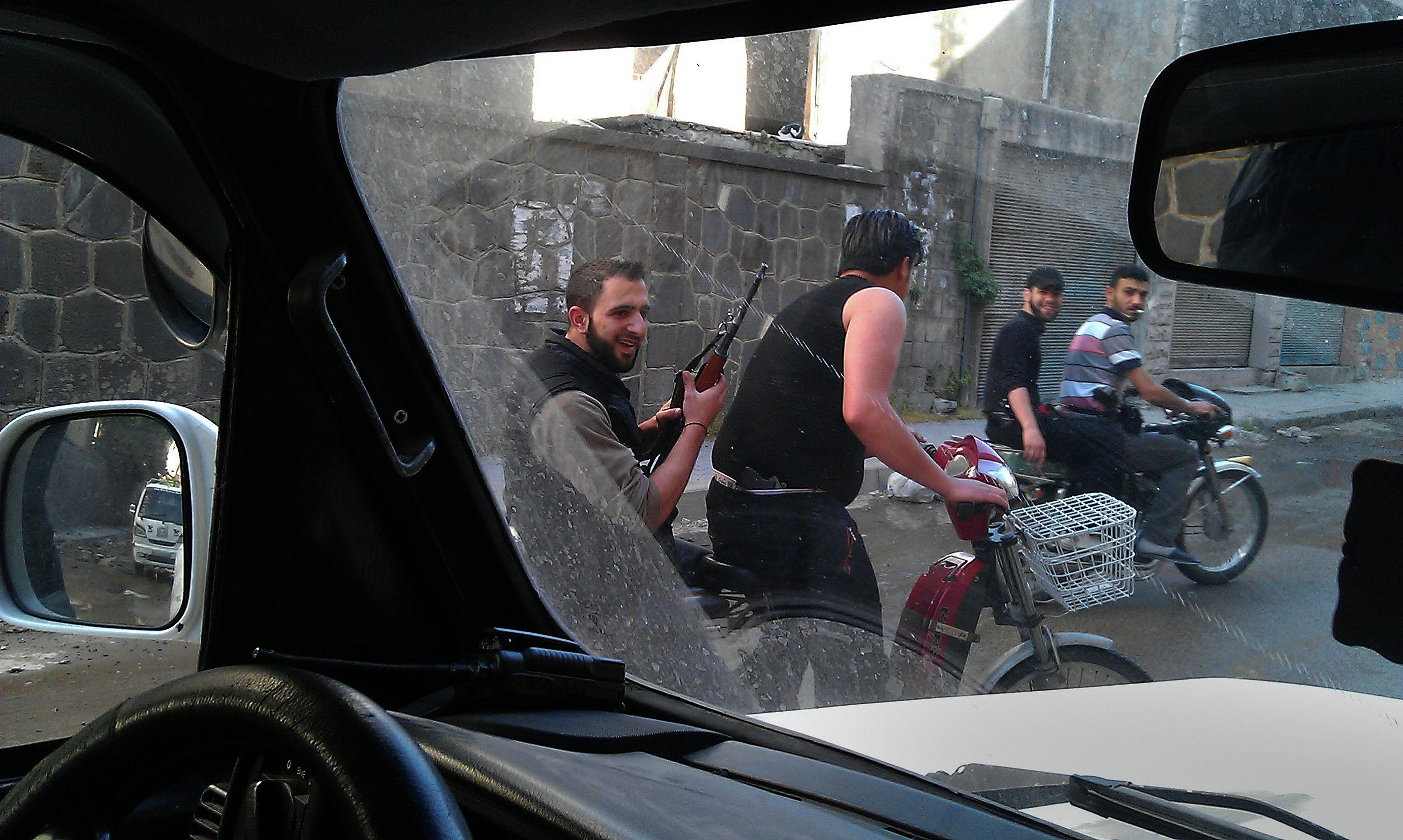MOSCOW, February 19 - RAPSI, Ingrid Burke. The UN commission charged with investigating violations of human rights in the context of the Syria conflict is pointing fingers at both sides of the conflict that has ravaged Syria for the past two years, accusing both the rebels and the ruling regime of war crimes and crimes against humanity in its damning fourth report.
This is crucial, as earlier reports issued by the Independent International Commission of Inquiry on the Syrian Arab Republic (commission) tended to focus more heavily on the indiscretions of military forces acting under President Bashar al-Assad than on those committed by anti-government forces.
Last May, for instance, a periodic update issued by the commission stated explicitly that most of the offenses it had documented during the preceding two-month observation period were committed by pro-Assad forces: “Most of the serious human rights violations documented by the Commission in this Update were committed by the Syrian army and security services as part of military or search operations conducted in locations known for hosting defectors and/or armed persons, or perceived as supportive of anti-government armed groups.”
In fact, until September the standard line of reasoning with regard to the commission’s low-caliber reporting on rebel activities was the fact that the “the international human rights legal regime operates primarily vis-à-vis states,” whereas the rebels were rightly treated as non-state actors.
In an oral update issued late last June, the commission cast its first war crimes stone, though this was specifically aimed at protecting its own. Citing the Rome Statute of the International Criminal Court (ICC), the report reminds combatants on both sides of the conflict: “Where international humanitarian law is applicable, attacks on personnel or objects involved in humanitarian assistance or peacekeeping missions constitute a war crime.”
In its August report, the commission spoke openly about the commission of war crimes, crimes against humanity, and gross violations of international human rights law and humanitarian law by forces loyal to the Assad regime. Among those crimes attributed in the report to government loyalists were: unlawful killing, torture, arbitrary arrest and detention, sexual violence, indiscriminate attack, pillaging, and the destruction of property.
The same report made waves in suggesting that the rebels may too have engaged in illicit activities, albeit making clear the commission’s view that these crimes were relatively mild: “The violations and abuses committed by anti-Government armed groups did not reach the gravity, frequency and scale of those committed by Government forces.” Still, the commission hinted at the possibility that war crimes had been committed, by way of the executions of government loyalists without trial.
There was no more beating around the bush Monday as the UN Office of the High Commissioner for Human Rights (UNOCHR) announced the release of the commission’s fourth report, stating: “the UN commission of inquiry finds that both pro- and anti-Government forces have become increasingly violent and reckless with human life as the conflict draws to the close of its second year.”
In fact, right in the summary the fourth report asserts that rebel forces have committed the following war crimes: murder, torture, the taking of hostages, attacks on protected objects, and attacking civilians via bombings in civilian strongholds.
On the heels of these charges, however, was the predictable caveat: “The violations and abuses committed by anti-Government armed groups did not, however, reach the intensity and scale of those committed by Government forces and affiliated militia.”
Accordingly, forces loyal to Assad are charged with a more expansive array of indiscretion, including crimes against humanity (murder, torture, rape, enforced disappearances, etc.), as well as war crimes and gross violations of international human rights and humanitarian law (arbitrary arrest and detention, unlawful attack, attacking protected objects, and pillaging and destruction of property).
Both sides are accused of using children in combat. Government forces are believed to have used children under the age of 18 in direct hostilities, while the rebels are believed to have used children under the age of 15.
In closing, the report called on both parties, the international community, and the UNOCHR to rally against impunity, vowing to submit a list of war criminals.
The Independent International Commission of Inquiry on the Syrian Arab Republic was established on 22 August 2011 by the Human Rights Council through resolution S-17/1adopted at its 17th special session with a mandate to investigate all alleged violations of international human rights law since March 2011 in the Syrian Arab Republic. The Commission was also tasked to establish the facts and circumstances that may amount to such violations and of the crimes perpetrated and, where possible, to identify those responsible with a view of ensuring that perpetrators of violations, including those that may constitute crimes against humanity, are held accountable.



